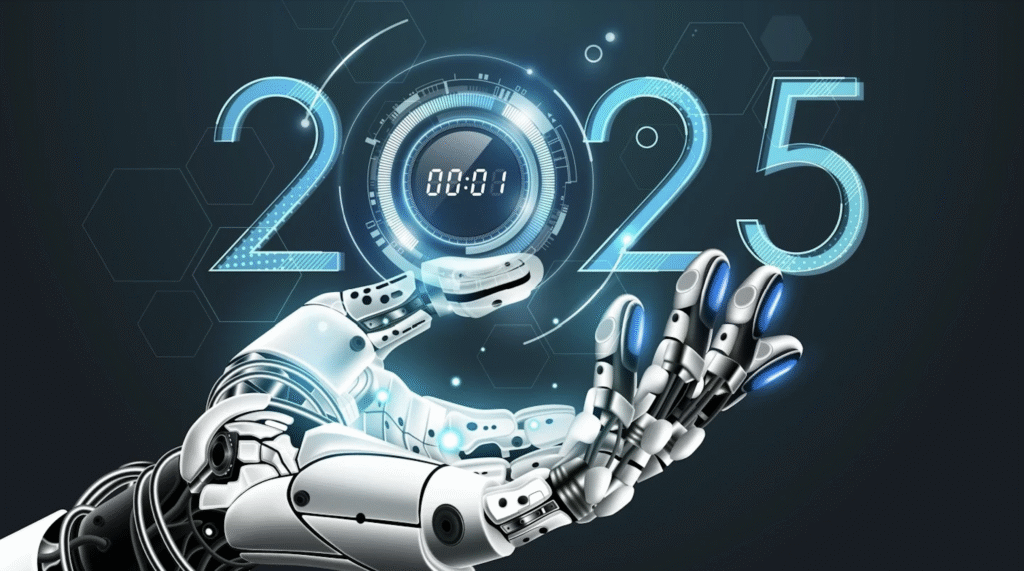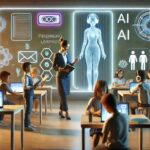The AI landscape is undergoing a seismic shift as we approach 2025, moving beyond simple chatbots and predictive algorithms to Agentic AI systems capable of autonomous reasoning, strategic planning, and complex decision-making. These self-directed AI agents are poised to revolutionize industries by automating multi-step workflows, optimizing business operations, and enhancing human judgment at unprecedented scales.
The global market for autonomous AI solutions is projected to reach $118.6 billion by 2025, growing at a staggering 35.2% CAGR (MarketsandMarkets). This comprehensive guide explores how Agentic AI differs from traditional AI, its transformative applications across sectors, and the ethical considerations shaping its development.
1. What Makes Agentic AI Different?
Agentic AI represents a quantum leap beyond conventional AI models with three defining characteristics:
A. Autonomous Goal Pursuit
- Sets and pursues objectives without human intervention
- Dynamically adjusts strategies based on real-time feedback
- Example: AI supply chain agents rerouting shipments around disruptions
B. Multi-Agent Collaboration
- Specialized agents work in coordinated teams
- Example: Healthcare diagnosis system combining:
- Medical imaging analyzer
- Literature research bot
- Treatment recommendation engine
C. Continuous Self-Improvement
- Learns from both successes and failures
- Breakthrough: Google’s AutoRT system refining its decision-making through thousands of simulated scenarios
2. Industry Transformations: Agentic AI in Action (2025 Outlook)
A. Healthcare: The AI Doctor Will See You Now
- Diagnostic agent teams achieving 96% accuracy in complex case analysis (vs. 89% for human specialists)
- Hospital operations optimization reducing ER wait times by 40%
- Case Study: Mayo Clinic’s AI Clinical Decision Support System processing 10,000+ research papers daily
B. Financial Services: The Rise of AI Fund Managers
- Autonomous trading agents executing microsecond arbitrage
- Fraud detection systems predicting novel attack patterns
- Stat: 78% of hedge funds will use Agentic AI by 2025 (PwC)
C. Manufacturing: Lights-Out Factories
- Self-optimizing production lines
- Predictive maintenance agents reducing downtime by 65%
- Example: Tesla’s “Unsupervised Factory” initiative
3. The Decision-Making Revolution
Agentic AI is transforming organizational strategy through:
A. Cognitive Automation
- Processing unstructured data (emails, reports, calls)
- Example: Legal document review completed in minutes vs. weeks
B. Scenario Planning
- Running millions of simulations for risk assessment
- Breakthrough: MIT’s “ScenarioGAN” generating plausible futures
C. Real-Time Optimization
- Continuously adjusting business parameters
- Impact: Retailers using Agentic AI see 23% higher margins
4. Technical Foundations Powering Agentic AI
The 2025 AI stack combines:
| Technology | Role | Example |
|---|---|---|
| LLM Orchestration | Reasoning backbone | GPT-5, Claude 3 |
| Reinforcement Learning | Adaptive decision-making | DeepMind’s SIMA |
| Digital Twins | Simulation environments | NVIDIA Omniverse |
| Neuromorphic Chips | Energy-efficient processing | Intel Loihi 3 |
5. Ethical Imperatives for Agentic AI
As these systems gain autonomy, critical safeguards emerge:
A. Control Frameworks
- Three-Layer Governance Model:
- Hard-coded ethical constraints
- Real-time monitoring
- Human override capabilities
B. Transparency Standards
- Explainable AI (XAI) requirements
- Regulation: EU’s AI Act Article 17
C. Security Protocols
- Blockchain-verified agent decisions
- Example: IBM’s “Cryptographic AI Audit Trail”
6. The 2025 Workforce: Human-AI Collaboration
Contrary to replacement fears, Agentic AI creates:
- 55 million new jobs in AI oversight (World Economic Forum)
- Augmented roles like:
- AI Strategy Directors
- Machine Behavior Analysts
- Ethical Alignment Specialists
7. Future Horizons: 2025-2030 Projections
- AI CTOs joining corporate boards
- Moral AI certification programs
- Quantum-AI hybrids solving grand challenges
Conclusion: Navigating the Agentic AI Revolution
Organizations must:
✅ Audit automation-ready processes
✅ Invest in hybrid talent
✅ Implement governance frameworks


